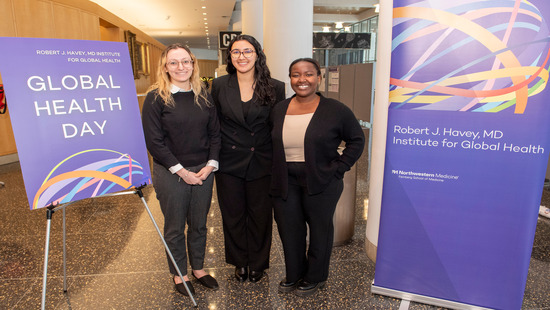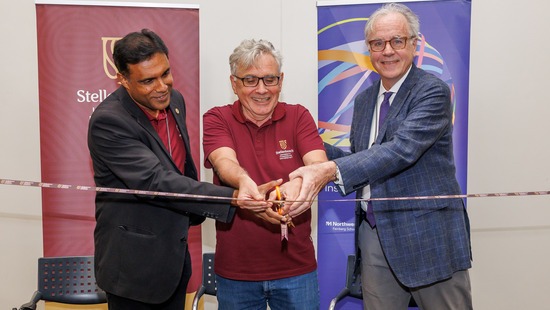Students Compete in Intramural Global Health Case Competition

As respiratory viruses spread in Peru and Bolivia, a team of scientists from the Robert J. Havey, MD Institute for Global Health is working to track the transmission.
This research is highlighted in two key projects: the Global Health Research Catalyzer funded Infrastructural Expansion and Curriculum Building for Genome Surveillance of Respiratory Viruses in Peru and the Global Innovation Challenge Grant funded SARS-CoV-2 Surveillance and Capacity Building in Peru and Bolivia. Both projects are funded by the Havey Institute for Global Health.
These projects focus on developing technical capacity and skills to track the spread of respiratory viruses such as SARS-CoV-2 (the virus that causes COVID-19), influenza, RSV, and others in Peru and Bolivia. Several countries in South America have seen extremely high levels of COVID illnesses and deaths. Unfortunately, many of these regions lacked the capacity to examine the genetic sequences of the viruses to assess the variants that were causing the infections. Without this information, it is harder to and were unable to track virus transmission and particularly how viruses are evolving in their communitiesthroughout each country, and regions within..
Both research projects are led by Egon Ozer, MD, PhD, director of the Center for Pathogen Genomics and Microbial Evolution (CPGME) and assistant professor of Medicine in the Department of Medicine, Division of Infectious Diseases. Other researchers from the CPGME include Judd Hultquist, PhD, associate director, and Ramon Lorenzo-Redondo, PhD, bioinformatics director. Jorge Sanchez, MD, MPH at the Centro de Investigaciones Tecnologícas, Biomédicas y Medioambientales (CITBM) leads the project in Lima, Peru, and Marly Parra at Universidad Autónoma Gabriel René Moreno (UAGRM) leads the project in Santa Cruz, Bolivia.
This, in turn, trains the next generation of researchers and public health experts and strengthens global collaborations to combat infectious diseases and pandemics.”

“These projects seek to provide sequencing resources and specialized training to partner institutes to be able to conduct genetic sequencing and analysis of current or potentially emerging respiratory viruses to better protect community members and to participate in global surveillance against future pandemics,” Ozer says.
In addition to the team’s research, they developed a Spanish-language workshop to conduct viral genomic sequencing and computational analyses. Researchers, faculty, and technicians attended the event, which was held at CITBM in Lima, Peru. The CPGME also provided instruction and demonstrations on conducting sequencing of viruses and analysis of the results when they hosted technician representatives from both CITBM and UAGRM for two weeks in Chicago.
“This work is important because it builds local capacity in South America for conducting surveillance of infections that are affecting their local communities in partnership with Northwestern, but without having to rely on all work being performed outside the country,” Ozer shares.
“This, in turn, trains the next generation of researchers and public health experts and strengthens global collaborations to combat infectious diseases and pandemics,” Ozer says.
Judd Hultquist, PhD; Egon A. Ozer, MD, PhD; and Ramon Lorenzo-Redondo, PhD are members of the Robert J. Havey, MD Institute for Global Health and Northwestern University Clinical and Translational Sciences Institute (NUCATS). Ozer and Lorenzo Redondo are members of Institute for Public Health and Medicine (IPHAM).
To learn more about the Center for Pathogen Genomics and Microbial Evolution, visit their website.
For details on events, news, and funding opportunities, sign up for the Havey Institute for Global Health newsletter.

